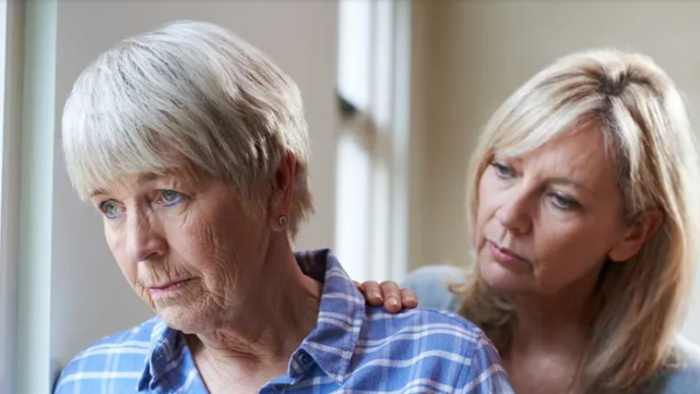Appearance-Related Warning Signs Your Parent Is Unable to Live Alone
 Often, it’s not easy to know when your mom or dad needs assisted living or another caregiving arrangement. Changes in physical appearance can be a helpful indicator, experts say.
Often, it’s not easy to know when your mom or dad needs assisted living or another caregiving arrangement. Changes in physical appearance can be a helpful indicator, experts say.
“Families are always late to the game,” says Anne Sansevero, a registered nurse and founder and CEO of the senior care consulting company HealthSense LLC in New York City. Rather than waiting to look for senior care in a panicked crisis, it’s ideal to have discussions early on and increase your ability to make the best decision, Sansevero adds.
If you notice any of these three appearance-related clues, it may be time to talk to your parent about senior living or hold an elder care planning meeting.
1. Rapid weight loss in seniors
Sansevero stresses the importance of visiting senior family members to assess physical warning signs and changes. Rapid weight loss in seniors stands out as one of the most noticeable and extreme warning signs. An older family member’s sudden weight loss could be connected to a number of medical conditions, including cancer, Alzheimer’s disease, gastrointestinal issues, and depression. While the cause of the weight loss is its own concern, the consequences can be a threat to personal health and security as well. Senior frailty increases the likelihood of falls, a home safety concern that may indicate your parent is unable to live alone. If you notice sudden rapid weight loss in your elderly parent, consult a doctor to rule out underlying physical conditions and potential medication side effects.
2. Neglected hygiene needs could signal larger problem
Significant changes in your senior loved one’s grooming habits may mean it’s time to consider assisted living or memory care. Overlooking routine tasks, such as shaving or styling your hair, could signal your loved one’s having difficulties with activities of daily living (ADLs). Grooming issues could also be a result of elderly depression, which is an early sign of dementia. In a study of 100 adults with neglected hygiene by the Texas Elder Abuse and Mistreatment Institute, more than half screened positive for elderly depression.
Pay attention to the following disruptions in your senior loved one’s hygiene and grooming routine:
• Disheveled hair
• Long, unclipped nails
• Body odor
• Poor oral health care
• No longer shaving
• No longer wearing makeup
3. Clothing choices can reveal senior confusion, challenges
Do you notice your senior loved one wearing long sleeves in the summer or lightweight clothes in the winter? Are they forgetting to change clothes on a daily basis? While unsuitable clothing could be an early sign of dementia, it may also signal depression or a lack of dexterity or strength. These all may be signs your parent needs daily assistance.
In addition to monitoring these appearance-related warning signs during visits, Sansevero recommends that concerned families reach out to a senior’s neighbors and friends to see if they’ve noticed unusual traits and trends. If these warning signs become a pattern, your senior loved one may be unable to live alone. “If they’re starting to neglect themselves, it’s definitely time to start researching options,” Sansevero emphasizes.
The importance of recognizing early signs of dementia and daily challenges
Physical warning signs an elderly parent shouldn’t live alone may go unnoticed and overlooked. Only 35% of older adults recognize key Alzheimer’s disease symptoms before diagnosis, according to the Centers for Disease Control.
However, caregiver observations are crucial even early on. A proactive response to physical, early signs of dementia or challenges of daily living can have positive effects on mental health, emotional well-being, and long-term happiness, says Sansevero.
Senior living may be a solution when a parent is unable to live alone. Assisted living provides help with ADLs such as dressing and medication management, socialization opportunities to decrease risk of depression, nutritious meals, and more. Memory care offers these services plus specialized treatment and programming specifically for people living with dementia.
Resource: https://www.aplaceformom.com/caregiver-resources/
Article contributed by: By Kara Lewis
Tags: #aging, #alzheimers, #assistedliving, #eldercare, #elderlycare, #healthsense, #memorycare

Comments are closed here.